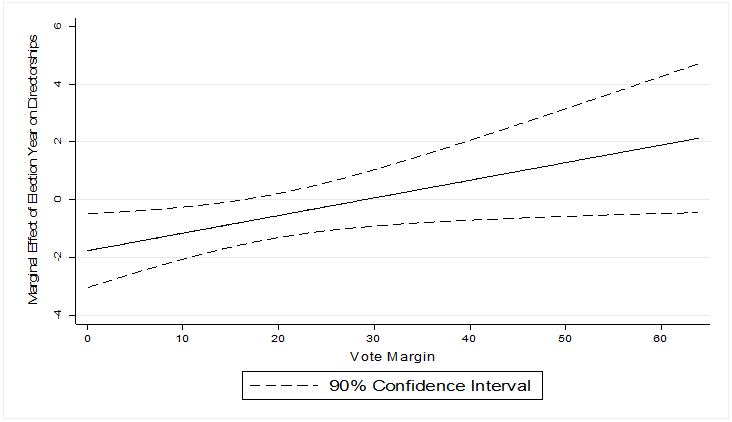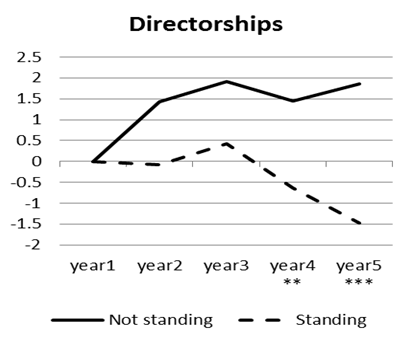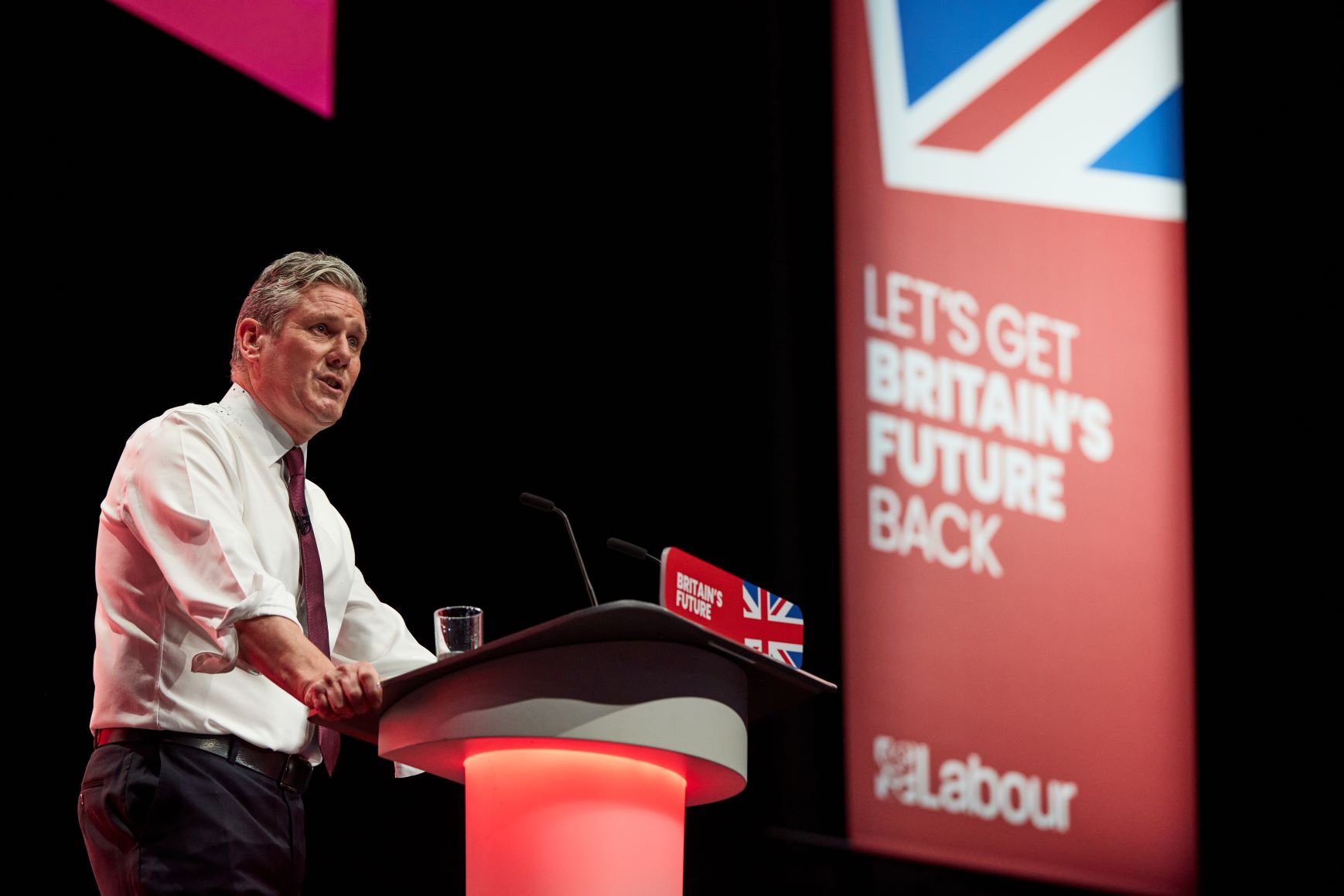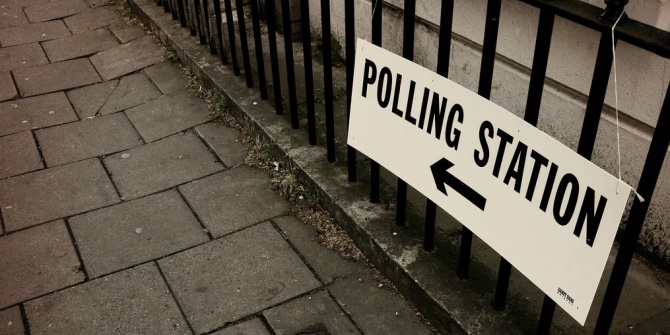 Politicians often implement popular changes in public policies – and avoid unpopular ones – prior to elections. Looking at the 2005-2010 legislature of the UK parliament, Benny Geys evaluates whether such ‘electioneering’ also affects politicians’ extra-parliamentary activities. He finds that only the electorally most vulnerable MPs appear to leave aside directorships prior to the election year.
Politicians often implement popular changes in public policies – and avoid unpopular ones – prior to elections. Looking at the 2005-2010 legislature of the UK parliament, Benny Geys evaluates whether such ‘electioneering’ also affects politicians’ extra-parliamentary activities. He finds that only the electorally most vulnerable MPs appear to leave aside directorships prior to the election year.
Politicians generally loathe alienating voters. This is particularly true when there are elections around the corner, since inopportune actions or statements may then undermine their position as an elected official. This argument underlies a classic claim in the social sciences: namely, politicians prefer implementing politically costly policies – such as tax increases – early in the legislative term, but favour more popular policies – such as public investment programs or tax reductions – when election day approaches. The idea is to leave incumbents’ popular policy decisions fresh in voters’ minds when casting their ballot, while allowing these same voters ample time to forget unpopular measures.
Evidently, such strategic behaviour would induce a boom/bust sequence in public policies tracking the election cycle – the occurrence of which has been extensively documented across many countries. But why would such strategic behaviour be limited to governments’ policy decisions? Why should it not likewise affect individual MPs’ actions? One way to assess election-driven changes in individual MPs’ behaviour is to look at how they deal with their outside interests – such as directorship and other forms of extra-parliamentary employment – around election day. Although outside interests are welcomed in many traditions of representation as a source of additional knowledge and experience for MPs, they are often equated with personal greed and conflicts of interest by the broader public (and the media); a view that only strengthened during recent scandals involving MPs’ expense claims (in 2009) and acceptance of ‘cash for influence’ (in 2009/10), ‘cash for questions’ (in 1994) or ‘cash for honours’ (in 2006-07). Hence, outside interests may negatively affect politicians’ public image. Since this is to be avoided when re-election is at stake, one might expect MPs’ outside interests to decline prior to elections.
We do not mean to imply here that all MPs will play the same game, or, at least, play it to the same extent. Electoral uncertainty is likely to matter. Indeed, the more uncertain one’s re-election, the stronger becomes the motive to do something – anything? – to make re-election more likely (or less unlikely). A narrower expected vote margin thus may create more intense pressure on MPs to steer clear of electorally harmful activities. Evidently, not standing for re-election will have the opposite effect, as there is no longer any fear of (potential) electoral retribution.
Figures 1 and 2 provide some preliminary evidence in line with these propositions using data taken from the UK House of Commons’ Register of Members’ Financial Interests. The analysis concentrates on “remunerated executive and non-executive directorships in private as well as public companies” (Category 1 in the Register) since these are most often highlighted in public debates on MPs’ outside interests – and thereby arguably carry the largest (potential) electoral retribution. It includes all entries from the Register for the period 2005-2010, thus covering one complete legislative term. The dependent variable is a dichotomous variable with value 1 when an MP reports at least one directorship during a given Session (a Session usually runs from November to November, unless there has been a general election), and 0 otherwise.
Figure 1: Election year effect as a function of MPs’ electoral margin
Notes: N=3034; Figure depicts the marginal effect of being in an election year over the range of MPs’ vote margin over the runner-up in the previous election. The dependent variable is an indicator variable for the presence of at least one directorship.
More specifically, Figure 1 depicts how the probability of having outside interests (our dependent variable) is affected by being in an election year (our central explanatory variable) depending on an MPs’ vote margin over the runner-up in the previous election (the key moderating variable). We thereby control for the characteristics of an MP’s political mandate (party affiliation, number of legislative periods, number of committee memberships), socio-demographic characteristics (age, sex, marital status, education, occupational background) and characteristics of the 2005 election in the MP’s district (voter turnout, number of parties). The results indicate that MPs in very vulnerable seats (i.e., vote margin≈0; located on the far left-hand side of Figure 1) have a significantly lower probability of holding directorships in the election year Session. This effect weakens when the MPs’ seat becomes safer (i.e., moving towards the right-hand side of Figure 1), and disappears when the MPs’ seat is safe enough (i.e. a vote margin over circa 17%). Hence, only the electorally most vulnerable MPs appear to leave aside directorships prior to the election year.
Figure 2 reports separate results for MPs that stood for re-election in the May 2010 elections and those that did not. This illustrates, in line with expectations, that MPs standing for re-election reduce directorships prior to the election, while those not standing for re-election actually increase them (throughout their entire last term). The difference between both subsets of politicians is statistically significant at conventional levels especially in years 4 and 5 of the legislative term (as indicated by the asterisks in Figure 2).
Figure 2: Election year effect as a function of MPs’ standing for re-election
Notes: N=3034; Figure depicts coefficient estimates of a logistic panel regression with as dependent variable an indicator variable for the presence of at least one directorship. **, *** denote that the difference between MPs standing for re-election and MPs not standing for re-election is significant at 95% and 99% confidence level, respectively.
These results provide suggestive evidence that MPs’ outside interests may become hazardous assets during elections, and that a subset of (electorally vulnerable) MPs strategically respond to this potential threat. Yet, they admittedly only scratch the surface of this important issue of political accountability. At this point, alternative explanations cannot be entirely excluded: for instance, MP’s increased time constraints around election day, which may be particularly intense in marginal constituencies. Future work should also investigate whether these findings hold up over a longer time span, in different institutional contexts, and – given that the 2005-10 legislature witnessed several scandals and leadership changes – in less eventful periods.
Note: This article gives the views of the author, and not the position of the British Politics and Policy blog, nor of the London School of Economics. Please read our comments policy before posting.
Benny Geys is research professor at Vrije Universiteit Brussel (Brussels, Belgium) and associate professor in economics at Norwegian Business School BI (Oslo, Norway). His research concentrates on (local) public policy, political accountability and civic engagement.









